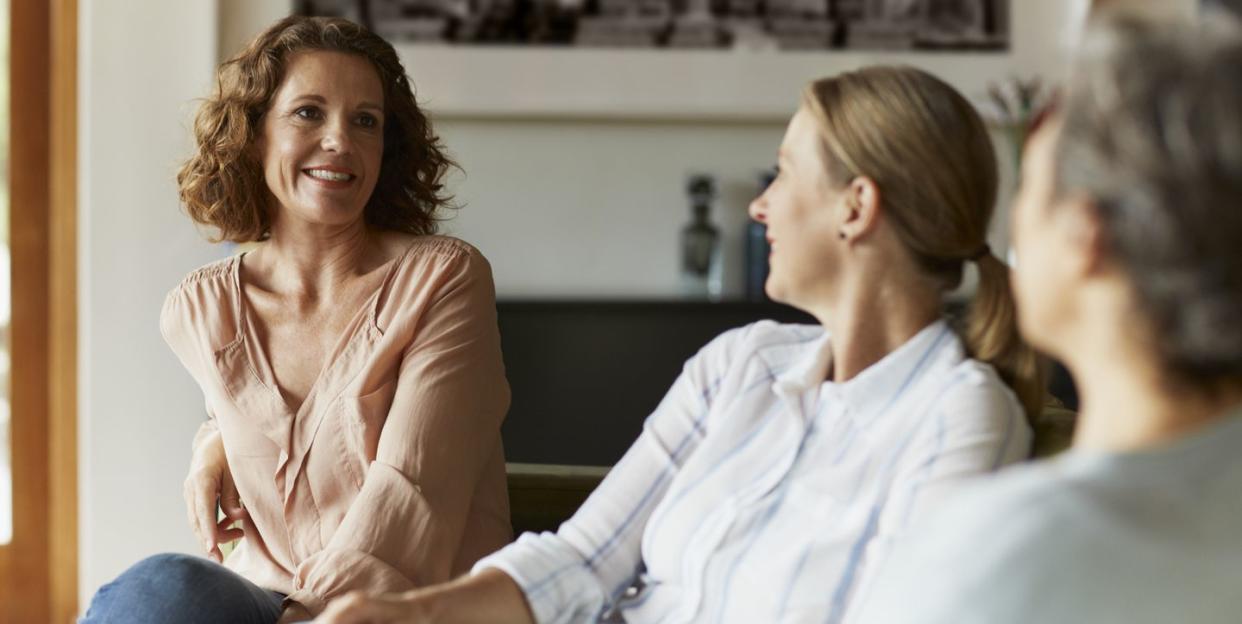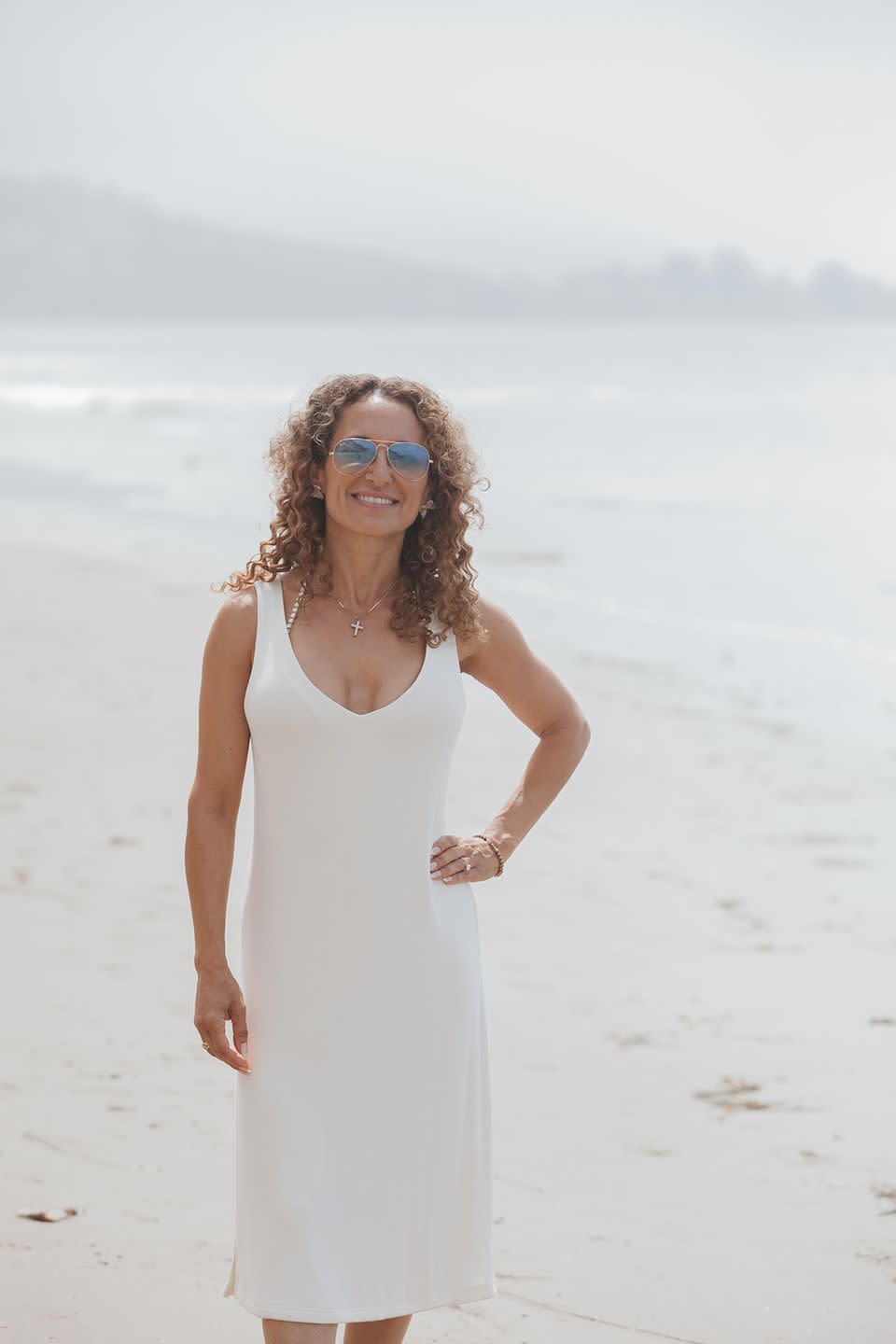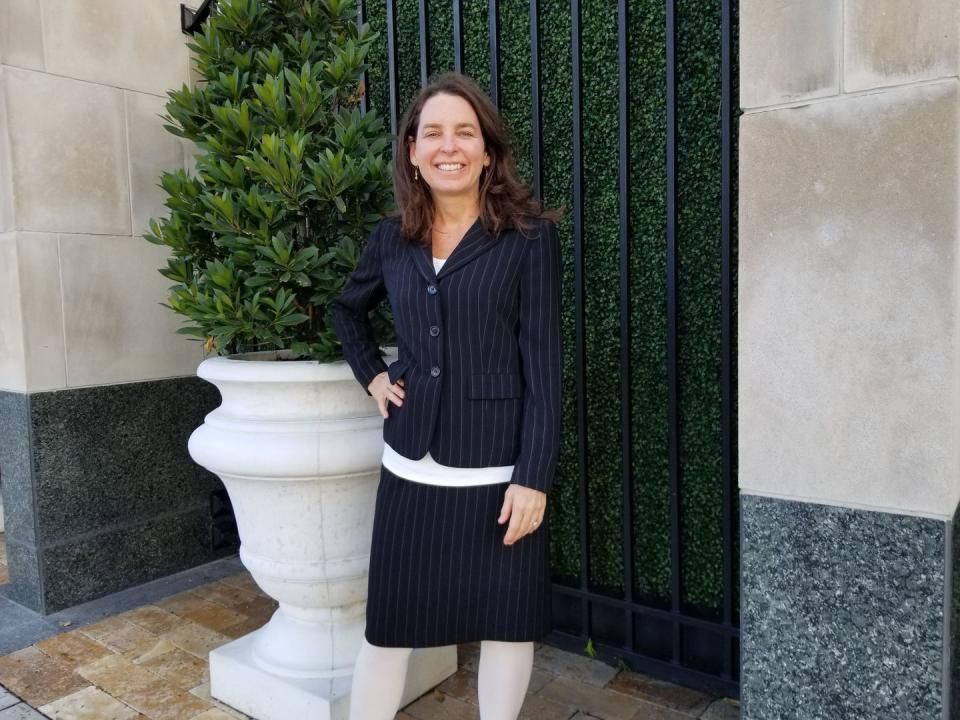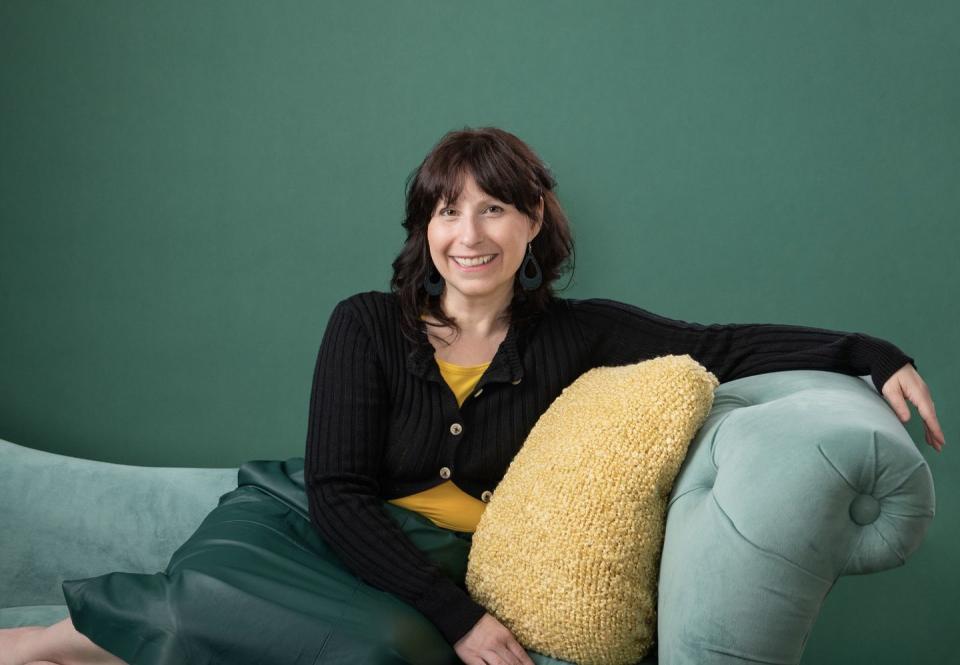Why Talking About Menopause Is So Important

Whenever there’s a topic people are uncomfortable talking about, they create clever euphemisms to avoid having to say the actual word. Case in point: “the change” and “the big M.” Roughly half of the population experiences menopause, yet many women are still not openly discussing the topic with those close to them. This is unfortunate, as staying mum on menopause can negatively affect your quality of life as well as your mental and physical health.
To help spark more dialogue, we organized a roundtable of women who have been through menopause and not only lived to tell about it, but are downright happy to have the conversation. In the below Q&A session, three women share their personal experiences with vasomotor symptoms (VMS)—the official term for menopause-related hot flashes, night sweats, and heart palpitations—and why it’s important to open up and break the silence around menopause.
Meet Our Three Women
Mareya Ibrahim, 53, Westlake Village, California, chef and author of the book Eat Like You Give a Fork: The Real Dish on Eating To Thrive.

Tina Willis, 52, Orlando, personal injury attorney.

Carrie Jeroslow, 52, Winston-Salem, North Carolina, conscious relationship coach and author of the book Why Do They Always Break Up With Me?

Prevention (PVN): How have hot flashes affected your relationships?
Mareya: They definitely don’t make me feel hot and sexy! I’ll never forget where I was when I experienced my first hot flash. I had just remarried after being a single mom for 13 years. I was in the kitchen working on a new recipe and a wave of smoldering heat overcame me, starting in my face and moving down my body, into my legs. I had to sit down because the heat in my head was so intense. There’s nothing worse than feeling like you’re sweating through your clothes and feeling dizzy when you’re trying to have fun with your new husband.
Tina: My husband now sleeps in our RV because I became such a light sleeper thanks to hot flashes and heart palpitations, and I had to focus so much on getting enough sleep every night. This hasn’t hurt my marriage, though, because my husband is a wonderful person. But I do feel somehow slightly less connected to him and more afraid and alone in our house at night.
Carrie: I have hot flashes more during the night and it contributes to me preferring to sleep with space around me. But I don’t know if that’s 100 percent due to the hot flashes. I’m a light sleeper, so I tend to like a dark, quiet space to sleep in.
PVN: Hot flashes get all the attention, but they’re hardly the only menopausal symptom. Which ones took you by surprise?
Mareya: There was a marked feeling after drinking coffee or alcohol. After a second cup of coffee one morning, I felt like I was having a heart attack, with a pounding heart and dizziness. It was so scary, I felt like I was losing control of my body. The same thing happened after drinking red wine.
Tina: Bloating, acid reflux, and constipation, although these problems are starting to improve after a lot of effort with multiple doctors. I’m also losing a ton of hair in the shower every day. But here’s the thing: You don’t know if the symptoms are part of menopause or if you have a regular medical problem that needs attention.
Carrie: Anxiety. Seemingly out of nowhere, I began feeling extreme anxiety accompanied by heart palpitations and heart fluttering. It affected me mostly while driving. I would get so light-headed that I was afraid to drive on the highway. I’d pull off and drive the back roads, instantly feeling better.
PVN: How bad did your symptoms get?
Mareya: I had an episode once where I panicked so badly and my heart started racing so severely that I had to pull over on the freeway because I thought I was having a heart attack. I’d cry and get furious over nothing. Out of nowhere, I had a tire around my midsection. And I was so distracted all the time, I felt like a squirrel. The anxiety was eating me up. I felt so much apathy and sadness—heaviness, really—that I didn’t care what happened to me. That is so not my character.
Tina: My hot flashes are still fairly mild, but the ripple effects have gotten worse. For instance, waking way too early—from being hot—has really changed my life and daily routine. I’m a lawyer with a busy schedule, so I had to alter my morning routine to allow myself longer time in bed. Waking up early and staying awake for an hour and a half before finally going back to sleep is my new normal.
Carrie: Because I had my second son at 43 and didn’t have my period for two years, I didn’t notice my symptoms worsening until I was 48. This is when my period became hugely erratic. It was completely different than what I was told would happen. I was always told that I would have less frequent periods that would ultimately just stop. Instead, when I was 48, my periods would come every 18 to 23 days, my hot flashes were more intense, and the anxiety got so severe that I always stayed close to home.
PVN: How was—and wasn’t—it helpful to talk about menopause with a healthcare provider?
Mareya: My doctor told me everything looked normal—as in, I was indeed looking like any woman going through perimenopause. My response was, “What? No freaking way am I living like this!” That’s when I started exploring different approaches using diet, exercise, and supplements, mainly because I’d prefer that to taking a pill, but also because I felt like my doctor wasn’t giving me any useful information.
Tina: My gynecologist is a skilled and caring provider, but she didn’t really attribute any of my symptoms to menopause. She just ordered numerous tests—like a bone density scan—that I still haven’t had yet.
Carrie: My family doctor was very compassionate. He listened and gave me tips to help me navigate the emotional and physical symptoms. He opened the discussion about hormone replacement therapy, which I declined. My naturopath was wonderful and helpful and focused on my whole body and how it all worked together. She was the one who told me that what happened with my periods when I was 48 years old was actually more normal.
PVN: What have you learned about menopause from other women?
Mareya: That there’s a lot of suffering out there. And that women just want to feel better. It’s so much more than what your body looks like. If you can’t think clearly, or you feel like you’re dying, how can you go out and live your purpose?
Tina: I have a good friend who’s 67 years old. She gave me a book about menopause, which helped me understand all the decisions that I would need to make such as hormone replacement therapy, which I’m not doing. Because she’s active and healthy—she’s into kayaking and hiking and is still really strong for her age—she gives me hope that I can still be happy and healthy despite the fact that so many scary changes are happening in my body. She shares stories about her hot flashes and struggles with sleep. She tells me over and over that it will get better. That reassurance from someone who has been there really helps.
Carrie: Every woman experiences menopause differently. I have friends who are also feeling high levels of anxiety during perimenopause, and we’ve all gotten a big sense of relief sharing our experiences with each other.
PVN: What’s the most important thing you’ve learned that you want other women to know?
Mareya: You are so not alone in this journey! And you can get in the best shape of your life right now—body, mind, and spirit. We just have to keep the dialogue open and share our real-world knowledge. For many of us, we can embrace it as the best time because we get to have more flexibility and freedom, and that’s very empowering. We can redefine what this time in our lives looks like and rock it!
Tina: Menopause makes this time in our lives confusing medically. Don’t assume that menopause is causing your symptoms. We can have other medical conditions, so it’s important to see your doctor to rule out, or get treatment for, other conditions.
Carrie: It’s a fascinating stage of life and one that begs for more acceptance of self.
You Might Also Like

